February 19 stands as one of history’s most eventful days, witnessing the rise and fall of empires, groundbreaking discoveries, and moments that shaped our modern world across centuries of human achievement.
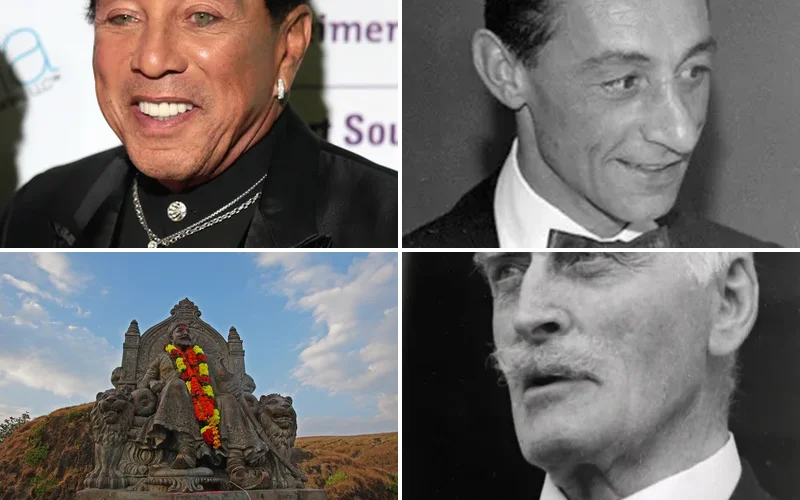
Politics and Government Events on February 19
1913 – Pedro Lascuráin’s 45-Minute Presidency

Pedro Lascuráin assumed the presidency of Mexico for just 45 minutes on this historic date. His remarkably brief tenure remains the shortest presidential term in world history.
This extraordinary political moment occurred during Mexico’s turbulent revolutionary period. Lascuráin’s fleeting presidency demonstrated the extreme instability gripping the nation during these chaotic times.
1954 – Crimean Peninsula Transferred to Ukraine

The Soviet Politburo officially ordered the transfer of Crimean Oblast from the Russian SFSR to the Ukrainian SSR. This administrative decision would prove monumentally significant decades later.
Soviet leaders justified the transfer as commemorating the 300th anniversary of Russian-Ukrainian cooperation. The decision appeared routine at the time but would become a flashpoint in modern geopolitical conflicts.
1959 – Cyprus Granted Independence by Britain
The United Kingdom officially granted Cyprus independence, ending decades of colonial rule. The formal proclamation would occur later on August 16, 1960.
This decision concluded years of intense negotiations between British administrators and Cypriot leaders. The independence agreement established Cyprus as a sovereign republic in the Mediterranean region.
1965 – Failed Military Coup in South Vietnam
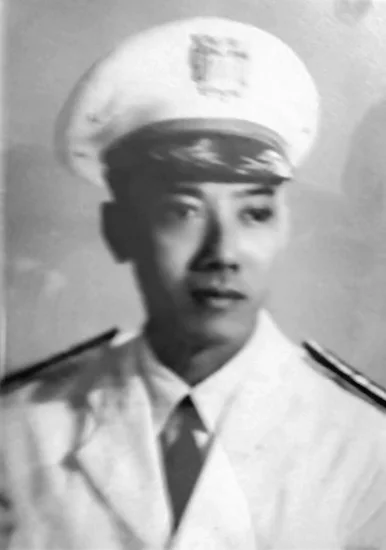
Colonel Phạm Ngọc Thảo and several generals attempted to overthrow the Buddhist military junta of Nguyễn Khánh. The coup represented deep religious and political divisions within South Vietnam’s leadership.
The failed conspiracy revealed the fragmented nature of South Vietnamese politics during the war. Thảo’s secret identity as a communist spy added another layer of complexity to the turbulent situation.
1975 – Japanese Internment Order Rescinded
President Gerald Ford formally rescinded Executive Order 9066 through Proclamation 4417. This action officially ended the legal framework that had enabled Japanese American internment during World War II.
Ford’s proclamation represented a significant acknowledgment of wartime injustices committed against American citizens. The rescission marked an important step toward national reconciliation and civil rights recognition.
Military and Naval History on February 19
1915 – Dardanelles Campaign Begins
Anglo-French naval forces launched the first major attack on the Dardanelles straits during World War I. The powerful task force bombarded Ottoman artillery positions along the Gallipoli coastline.
This naval assault marked the opening phase of the ill-fated Gallipoli campaign. The bombardment aimed to force passage through the straits and open a sea route to Russia.
1942 – Darwin Air Raid by Japanese Forces
Nearly 250 Japanese warplanes launched a devastating attack on Darwin, Australia’s northernmost city. The raid killed 243 people and marked Japan’s first direct assault on Australian soil.
The attack brought World War II directly to Australian territory for the first time. Darwin’s strategic importance as a military base made it a prime target for Japanese expansion.
1942 – Japanese American Internment Authorized
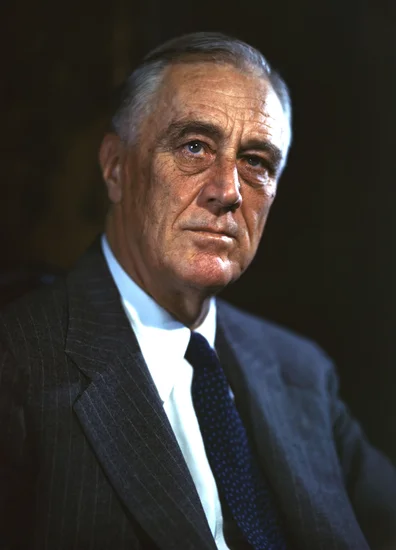
President Franklin D. Roosevelt signed Executive Order 9066, authorizing military commanders to relocate Japanese Americans to internment camps. This decision affected over 120,000 people of Japanese ancestry.
The order represented one of the most controversial civil rights violations in American history. Fear and wartime hysteria drove the government to imprison citizens without due process.
1943 – Battle of Kasserine Pass Commences
American forces engaged German Afrika Korps units in Tunisia’s first major desert battle. The confrontation tested inexperienced American troops against seasoned German veterans.
Kasserine Pass became a crucial learning experience for American military commanders in North Africa. The battle exposed tactical weaknesses that would be addressed in subsequent campaigns.
1945 – Iwo Jima Invasion Begins
Approximately 30,000 United States Marines stormed the beaches of Iwo Jima in the Pacific Theater. The amphibious assault launched one of World War II’s bloodiest battles.
The invasion aimed to capture this strategic island just 750 miles from Tokyo. Iwo Jima’s airfields would provide crucial staging areas for the planned invasion of Japan.
Science and Discovery Milestones on February 19
1960 – China Launches First Rocket
China successfully launched the T-7, marking the nation’s entry into the space age. This sounding rocket represented a major milestone in Chinese aerospace development.
The T-7 launch demonstrated China’s growing technological capabilities during the Cold War era. This achievement laid the foundation for China’s eventual emergence as a major space power.
1985 – Artificial Heart Patient Leaves Hospital
William J. Schroeder became the first artificial heart recipient to leave the hospital setting. His successful recovery marked a breakthrough in cardiac surgical procedures.
Schroeder’s achievement demonstrated the potential of artificial organ technology to extend human life. The milestone encouraged further research into mechanical heart devices and transplant alternatives.
2002 – Mars Odyssey Begins Surface Mapping
NASA’s Mars Odyssey space probe initiated comprehensive surface mapping using its thermal emission imaging system. The mission provided unprecedented detail about Martian geology and climate.
Odyssey’s thermal imaging revealed crucial information about water ice deposits on Mars. The probe’s discoveries would guide future Mars exploration missions and landing site selections.
2011 – Tang Dynasty Treasures Exhibited
The Belitung shipwreck exhibition opened in Singapore, displaying the largest collection of Tang dynasty artifacts found in one location. The treasures revealed ancient maritime trade routes.
These artifacts provided remarkable insights into 9th-century Chinese craftsmanship and international commerce. The collection demonstrated the extensive reach of Tang dynasty trade networks across Asia.
Cultural and Arts Events on February 19
1949 – Ezra Pound Receives Bollingen Prize
Ezra Pound received the first Bollingen Prize in poetry from the Bollingen Foundation and Yale University. The controversial award recognized his literary contributions despite his wartime activities.
The prize sparked intense debate about separating artistic merit from political actions. Pound’s recognition while confined for treason charges raised questions about art’s relationship to politics.
1953 – Georgia Literature Commission Established
The Georgia Literature Commission was formally established to oversee book censorship throughout the state. This institution reflected growing concerns about controversial literature in American schools.
The commission’s creation represented broader national tensions over intellectual freedom and moral standards. Similar censorship bodies emerged across the South during this cultural period.
1963 – The Feminine Mystique Published

Betty Friedan’s groundbreaking book “The Feminine Mystique” was published, reigniting the American feminist movement. The work challenged traditional assumptions about women’s roles in society.
Friedan’s analysis of suburban women’s discontent sparked nationwide consciousness-raising groups. The book became a foundational text for second-wave feminism across the United States.
1978 – Larnaca Airport Incident
Egyptian commandos raided Larnaca International Airport without Cypriot authorization during a hijacking intervention. Cypriot forces killed 15 Egyptian soldiers in the resulting confrontation.
The incident severely strained Egyptian-Cypriot relations and highlighted jurisdictional complexities in international counter-terrorism operations. The clash demonstrated the risks of unilateral military interventions.
Religious and Social Events on February 19
1937 – Assassination Attempt on Italian Viceroy

Two Ethiopian nationalists attempted to assassinate Italian Viceroy Rodolfo Graziani with grenades during a public ceremony in Addis Ababa. The attack occurred during Ethiopia’s occupation period.
The assassination attempt triggered brutal Italian reprisals against Ethiopian civilians. This event, known as Yekatit 12, became a symbol of Ethiopian resistance against fascist occupation.
1948 – Southeast Asian Youth Conference
The Conference of Youth and Students of Southeast Asia Fighting for Freedom and Independence convened in Calcutta. The gathering united anti-colonial movements across the region.
Young activists from various Southeast Asian territories shared strategies for achieving independence. The conference strengthened regional solidarity against continuing European colonial rule.
1986 – Akkaraipattu Massacre in Sri Lanka

The Sri Lankan Army massacred 80 Tamil farm workers in the eastern province of Akkaraipattu. This tragic event occurred during the escalating ethnic conflict in Sri Lanka.
The massacre intensified Tamil separatist movements and international criticism of Sri Lankan military actions. The incident highlighted the brutal nature of the ongoing civil war.
2020 – Hanau Terrorist Attacks
Nine people were killed in two domestic terrorist shootings targeting immigrant communities in Hanau, Germany. The attacks shocked the nation and highlighted rising far-right extremism.
The shooter’s manifesto revealed deep-seated racist ideologies and conspiracy theories. The tragedy prompted renewed efforts to combat hate speech and far-right radicalization.
Business and Economic Events on February 19
2006 – Mexican Mining Disaster
A methane explosion in a coal mine near Nueva Rosita, Mexico, killed 65 miners in one of the country’s deadliest industrial accidents. The disaster highlighted dangerous working conditions in Mexican mining operations.
The explosion occurred at the Pasta de Conchos mine, trapping workers underground. The tragedy sparked investigations into mining safety regulations and corporate responsibility in Mexico’s extractive industries.
2012 – Apodaca Prison Violence

Forty-four people were killed in a violent prison brawl in Apodaca, Nuevo León, Mexico. The incident reflected the ongoing crisis in Mexico’s overcrowded and understaffed prison system.
The violence involved rival drug cartel members and highlighted the extent of organized crime influence within Mexican correctional facilities. The massacre prompted calls for comprehensive prison reform.
2021 – Myanmar Protest Casualty
Mya Thwe Thwe Khine, a 19-year-old protester, became the first known casualty of anti-coup demonstrations in Myanmar. Her death galvanized international opposition to the military takeover.
The teenager’s shooting marked a tragic escalation in the military’s crackdown on peaceful protesters. Her death became a symbol of resistance against authoritarian rule in Myanmar.
Transportation and Infrastructure on February 19
1985 – Iberia Flight 610 Crash
A Boeing 727 operating as Iberia Flight 610 crashed into Mount Oiz in Spain, killing all 148 people aboard. The accident remains the deadliest in Iberia’s history.
The crash occurred during the aircraft’s approach to Bilbao Airport in poor weather conditions. The tragedy highlighted the dangers of mountainous terrain and adverse weather in aviation safety.
1988 – AVAir Flight 3378 Accident
A Fairchild Swearingen Metroliner crashed in Cary, North Carolina, killing 12 people aboard. The accident involved a commuter aircraft operating scheduled passenger service.
The crash occurred during the aircraft’s final approach to the airport. The accident contributed to ongoing discussions about safety standards for smaller commercial aircraft.
1989 – Flying Tiger Line Crash in Malaysia

Flying Tiger Line Flight 66 crashed into a hill near Sultan Abdul Aziz Shah Airport in Malaysia, killing four crew members. The cargo aircraft was approaching the airport when the accident occurred.
The crash highlighted the challenges of operating large cargo aircraft in tropical weather conditions. The accident prompted reviews of approach procedures at Southeast Asian airports.
2003 – Iranian Military Aircraft Disaster
An Ilyushin Il-76 military transport aircraft crashed near Kerman, Iran, killing 275 people in one of aviation’s deadliest military accidents. The aircraft was carrying members of Iran’s Revolutionary Guard.
The crash occurred in mountainous terrain during poor weather conditions. The massive loss of life shocked Iran and raised questions about military aviation safety standards.
Sports and Recreation on February 19
1913 – Prince Pedro Gastão’s Athletic Legacy

Prince Pedro Gastão of Orléans-Braganza was born into Brazilian nobility, later becoming known for promoting sports and recreation. His aristocratic background provided platforms for athletic development.
The prince’s later involvement in sporting organizations helped establish Brazil’s modern athletic infrastructure. His noble status lent prestige to various recreational and competitive sporting events.
1916 – Eddie Arcaro’s Birth
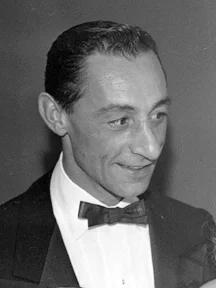
Eddie Arcaro, who would become one of America’s greatest jockeys, was born on this date. His future career would span decades and include multiple Kentucky Derby victories.
Arcaro’s remarkable talent would make him the first jockey to win the Triple Crown twice. His broadcasting career after retirement helped popularize horse racing among American television audiences.
1924 – Lee Marvin’s Athletic Background
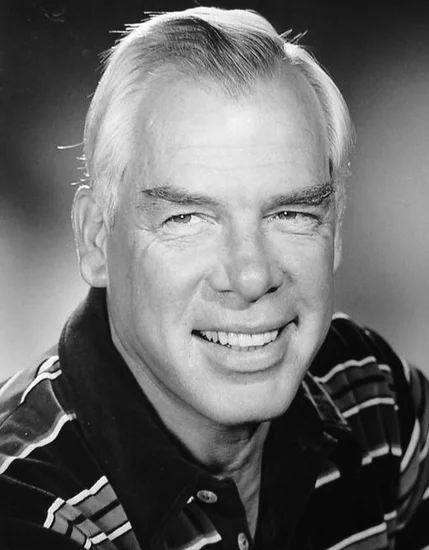
Lee Marvin was born, later becoming famous as an actor but initially known for his athletic pursuits. His physical presence and coordination contributed to his success in action films.
Marvin’s military service and natural athleticism informed his later portrayals of tough characters. His physical capabilities made him a natural choice for war movies and westerns.
1973 – Sócrates’ Football Legacy

Brazilian football legend Sócrates was born, destined to become one of the sport’s most intelligent and politically conscious players. His medical background distinguished him from other professional athletes.
Sócrates would later captain Brazil’s national team and promote democratic ideals through football. His activism demonstrated how sports figures could influence political and social change.
Notable Births on February 19
1911 – Merle Oberon, Film Star
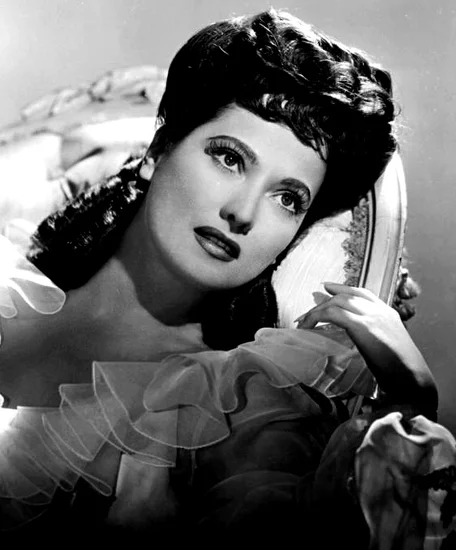
Merle Oberon was born in India and would become one of Hollywood’s most glamorous actresses. Her exotic beauty and acting talent made her a major star during cinema’s golden age.
Oberon’s career spanned several decades and included memorable roles in romantic dramas. Her success broke barriers for actresses of mixed heritage in Hollywood’s studio system.
1917 – Carson McCullers, Literary Giant

Carson McCullers was born in Georgia and would become one of America’s most celebrated Southern writers. Her novels explored themes of isolation and human connection with remarkable sensitivity.
McCullers’ works like “The Heart Is a Lonely Hunter” established her as a major literary voice. Her exploration of marginalized characters influenced generations of American writers.
1924 – David Bronstein, Chess Master

David Bronstein was born in Ukraine and would become one of the world’s greatest chess players. His creative and attacking style revolutionized modern chess theory.
Bronstein’s contributions to chess opening theory and endgame analysis influenced countless players. His writings on chess philosophy made the game accessible to broader audiences.
1930 – John Frankenheimer, Film Director

John Frankenheimer was born and would become one of cinema’s most innovative directors. His political thrillers and action films defined a generation of American moviemaking.
Frankenheimer’s technical mastery and social consciousness created memorable films about power and corruption. His work influenced countless directors and established new standards for cinematic storytelling.
1940 – Smokey Robinson, Musical Legend

Smokey Robinson was born in Detroit and would become one of Motown’s most influential artists. His songwriting and performing talents helped define the “Motown Sound.”
Robinson’s smooth vocals and sophisticated lyrics made him a cornerstone of American popular music. His work as a producer and executive helped launch numerous other musical careers.
1952 – Amy Tan, Celebrated Author

Amy Tan was born and would become one of America’s most important Asian-American writers. Her novels exploring Chinese-American experiences resonated with readers worldwide.
Tan’s “The Joy Luck Club” became a cultural phenomenon and opened doors for diverse voices in literature. Her work bridged cultural gaps and explored universal themes of family and identity.
1960 – Prince Andrew, Duke of York

Prince Andrew was born as the second son of Queen Elizabeth II and Prince Philip. His military service and royal duties would make him a prominent figure in British public life.
Andrew’s service in the Falklands War as a Royal Navy helicopter pilot demonstrated royal commitment to military service. His later charitable work focused on entrepreneurship and youth development.
1964 – Jennifer Doudna, Scientific Pioneer

Jennifer Doudna was born and would become a revolutionary biochemist and Nobel Prize laureate. Her work on CRISPR gene editing technology transformed modern biology.
Doudna’s research opened new possibilities for treating genetic diseases and advancing medical science. Her discoveries represent one of the most significant scientific breakthroughs of the 21st century.
Notable Deaths on February 19
1951 – André Gide, Literary Master

André Gide, the Nobel Prize-winning French author, died at age 81. His novels and essays explored moral complexity and individual freedom with unprecedented psychological depth.
Gide’s controversial works challenged conventional morality and religious orthodoxy. His influence on existentialist thought and modern literature continues to resonate with readers today.
1952 – Knut Hamsun, Norwegian Literary Giant
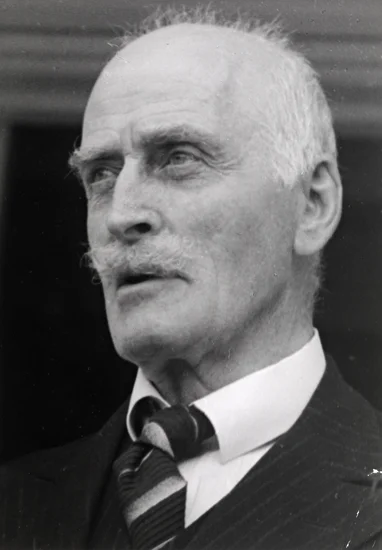
Knut Hamsun, the Nobel Prize-winning Norwegian novelist, died at age 92. His psychological novels pioneered modern literary techniques and influenced countless writers.
Hamsun’s “Hunger” and other works explored the human psyche with remarkable intensity. His controversial political views later complicated his literary legacy but couldn’t diminish his artistic achievements.
1962 – Georgios Papanikolaou, Medical Pioneer

Georgios Papanikolaou, the Greek-American pathologist who invented the Pap smear test, died at age 78. His diagnostic technique revolutionized women’s healthcare and cancer prevention.
Papanikolaou’s screening method saved millions of lives by enabling early detection of cervical cancer. His contribution to preventive medicine represents one of the 20th century’s most important medical advances.
1980 – Bon Scott, Rock Legend

Bon Scott, the Scottish-Australian lead singer of AC/DC, died at age 33. His powerful voice and charismatic stage presence helped define hard rock music.
Scott’s death marked the end of AC/DC’s early era and shocked the rock music world. His influence on heavy metal and rock vocals continues to inspire musicians decades later.
1997 – Deng Xiaoping, Chinese Reformer

Deng Xiaoping, China’s paramount leader and architect of economic reforms, died at age 92. His policies transformed China from an isolated communist state into a global economic power.
Deng’s “opening and reform” policies lifted hundreds of millions out of poverty and modernized Chinese society. His pragmatic approach to economic development changed the course of world history.
2016 – Harper Lee, Literary Icon

Harper Lee, the Pulitzer Prize-winning author of “To Kill a Mockingbird,” died at age 89. Her novel became one of the most influential works of American literature.
Lee’s portrayal of racial injustice in the American South educated generations of readers. Her work continues to spark important conversations about prejudice, justice, and moral courage.
2019 – Karl Lagerfeld, Fashion Visionary
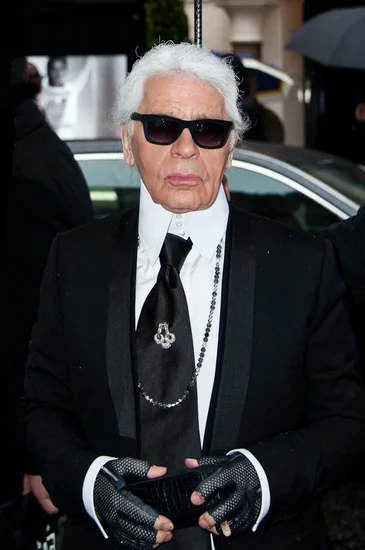
Karl Lagerfeld, the legendary German fashion designer, died at age 85. His creative genius and distinctive personal style influenced fashion for over five decades.
Lagerfeld’s work at Chanel, Fendi, and his own label defined modern luxury fashion. His wit, creativity, and business acumen made him one of the most recognizable figures in the fashion world.
Holidays and Observances on February 19
Army Day in Mexico
Mexico observes Army Day on February 19th, honoring the nation’s military forces and their contributions to national defense. The celebration includes parades and ceremonies across the country.
This observance recognizes the Mexican Army’s role in protecting national sovereignty and supporting civilian authorities. Military units display their capabilities while citizens express appreciation for their service.
Brâncuși Day in Romania
Romania celebrates Brâncuși Day on February 19th, commemorating the birth of Constantin Brâncuși, one of the most influential sculptors of the 20th century. The day honors his revolutionary contributions to modern art.
Brâncuși’s abstract sculptures redefined artistic expression and influenced countless artists worldwide. Romanian cultural institutions organize exhibitions and events celebrating his artistic legacy.
Shivaji Jayanti in Maharashtra

Maharashtra, India, celebrates Shivaji Jayanti on February 19th, honoring the birth of Chhatrapati Shivaji Maharaj, the founder of the Maratha Empire. The day celebrates his legacy of courage and leadership.
Shivaji’s military innovations and administrative reforms made him a legendary figure in Indian history. The celebration includes cultural programs, processions, and educational activities throughout Maharashtra.
